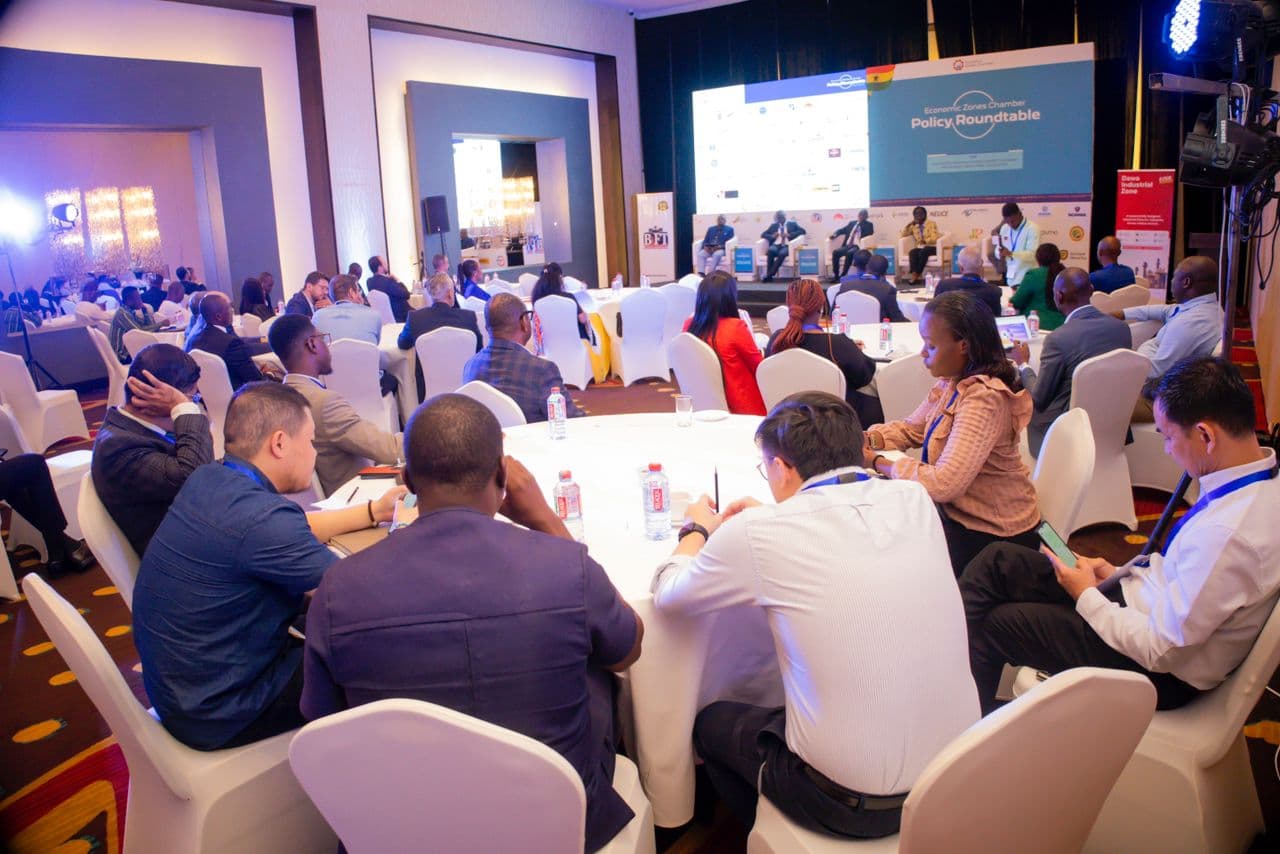The Unseen Consequences of Deglobalization on Economies Dependent on Foreign Direct Investment
Go to all updates
African nations have increasingly become attractive destinations for Foreign Direct Investment (FDI), playing host to investments that extend beyond monetary infusion. These investments bring with them not just financial capital but also the promise of technological advancements, skills transfer, and the adoption of best business practices. The dividends of FDI, if properly harnessed, have the potential to propel African economies forward, fostering sustainable development and job creation. However, the process of deglobalization, characterized by a decrease in international trade and investment, could have detrimental effects on African nations heavily reliant on FDI. With a decline in FDI, these economies may experience a slowdown in technological advancements, limited access to capital, and a decrease in job opportunities. This could hinder their ability to achieve sustainable development and economic growth. Additionally, the loss of FDI may also lead to increased competition among African nations for limited investment opportunities, further exacerbating the challenges they face.
FDI and the Manufacturing Sector in Africa
The manufacturing sector in Africa stands to gain substantially from FDI, much like its counterpart in the United States. Foreign affiliates contribute not only to economic growth but also to the enhancement of local industrial capabilities. To fully appreciate the potential consequences of reduced FDI, it is imperative to understand the intricate role foreign companies play in bolstering Africa's manufacturing sector. Foreign direct investment (FDI) has been a significant driver of growth in the manufacturing sector in Africa. It has not only brought in capital and technology but also created employment opportunities and stimulated innovation. However, any decline in FDI could have adverse effects on the sector, including reduced job creation and limited access to advanced technologies. Therefore, it is crucial for African countries to continue attracting FDI and create a favorable business environment to ensure the sustained development of their manufacturing industries.
Measuring the True Costs of Deglobalization in Africa
As geopolitical uncertainties persist and global supply chains face disruptions, the call for deglobalization becomes louder. However, the costs associated with such a move must be carefully weighed in the context of African economies. Daniel Ikenson's insights on the impact of dissipating FDI in the United States are relevant to Africa, emphasizing the need for a thorough examination of the true costs of retrenchment in the African context. Foreign companies have been instrumental in driving the growth of Africa's manufacturing sector by bringing in capital, technology, and expertise. They have helped create jobs, transfer skills, and promote economic diversification. Therefore, any decision to retreat from globalization should take into account the potential negative consequences for African economies, including reduced investment, limited access to markets, and slower industrial development. It is crucial to assess the true costs of deglobalization in Africa before making any drastic policy changes.
Technology Transfer and Business Practices in Africa
One of the inherent benefits of FDI lies in the transfer of technology and the adoption of best business practices. In Africa, where innovation is key to overcoming development challenges, the
facilitation of technology transfer through FDI can be a game-changer. Policymakers must recognize and incentivize foreign companies to share their technological advancements with local industries, fostering a culture of innovation and sustainability. Not only may African nations improve their productivity and competitiveness through the adoption of technology transfer, but they can also develop a trained labor force that is capable of driving economic growth. Apart from that, the promotion of a culture that encourages creativity and sustainability can result in the creation of homegrown solutions to solve the specific difficulties that African nations are confronted with, which will ultimately lead to the promotion of self-sufficiency and long-term development.
Unraveling the Impact of Reduced FDI in Africa
A decline in FDI could have profound consequences for African economies, affecting not only the countries directly receiving investments but also those indirectly reliant on the stability and growth of their trading partners. The interconnected nature of the global economy implies that a reduction in foreign investments could have ripple effects, impacting various sectors and hindering the progress made in recent years. For example, a decrease in FDI could lead to a slowdown in job creation and economic growth, as foreign investments often contribute to the development of new industries and the expansion of existing ones. Additionally, reduced FDI may also result in a decrease in technology transfer and knowledge sharing, limiting the ability of local industries to innovate and remain competitive in the global market.
Policy Advocacy for Safeguarding FDI in Africa
In light of these considerations, a robust policy framework tailored to the African context is crucial to safeguard FDI and protect against the unintended consequences of deglobalization. Here are key policy recommendations for African governments and policymakers:
1. Foster Regional Collaboration: Establish platforms for open dialogue and collaboration among African nations to create a conducive environment for sustained FDI. Regional integration can enhance the collective bargaining power of African nations in the global economic landscape. This can be achieved through the creation of regional trade agreements and the harmonization of investment policies. Additionally, promoting cross-border infrastructure development and connectivity can further facilitate regional collaboration and attract FDI to Africa. By working together, African nations can leverage their resources and strengths to attract larger and more sustainable FDI inflows.
2. Build Resilient Supply Chains: Recognize the importance of resilient and diversified supply chains. Encourage investments in technologies that enhance supply chain visibility and flexibility, reducing vulnerability to global disruptions. Investing in digitalization and automation can also improve supply chain efficiency and reduce dependence on manual labor. Furthermore, fostering partnerships between African countries and international businesses can help create a more robust and interconnected supply network, ensuring the smooth flow of goods and services across borders.
3. Incentivize Technology Transfer: Develop policies that incentivize foreign companies to transfer technology and best practices to local industries. This can enhance Africa's industrial capabilities and promote indigenous innovation. By encouraging technology transfer, African countries can gain access to advanced knowledge and expertise, allowing them to bridge the technological gap and accelerate their industrial growth. This not only
boosts local industries but also fosters a culture of innovation and entrepreneurship, driving economic development in the region.
4. Strengthen Regional Institutions: Reinforce the role of regional institutions in mediating trade disputes and promoting fair practices. A strengthened regional governance framework can provide stability and confidence for foreign investors in Africa. Additionally, by strengthening regional institutions, African countries can also enhance their bargaining power in international trade negotiations and ensure that their interests are protected. This can lead to increased investment opportunities and economic growth for the region as a whole. Moreover, a robust regional governance framework can facilitate knowledge sharing and collaboration among African nations, fostering a sense of unity and collective progress in addressing common challenges and pursuing shared goals.
5. Invest in Skills Development: Acknowledge the role of FDI in human capital development. Implement policies that align education and skills development programs with the evolving needs of industries influenced by FDI. By investing in skills development, African nations can ensure that their workforce is equipped with the necessary knowledge and abilities to thrive in industries influenced by FDI. This will not only attract more foreign investment but also lead to the creation of higher-paying jobs and increased productivity, ultimately contributing to sustainable economic growth. Additionally, fostering partnerships between educational institutions and foreign companies can provide valuable opportunities for students to gain practical experience and enhance their employability in a globalized economy.
Special Economic Zones (SEZs) as Catalysts for FDI in Africa
Special economic zones, often known as SEZs, are emerging as key weapons in the field of reducing the possible harmful consequences of deglobalization on economies that are largely dependent on Foreign Direct Investment (FDI). The Dawa Industrial Zone in Ghana is one example of a designated area that plays a significant role in attracting and maintaining international investments. Special Economic Zones (SEZs) are created to foster attractive business environments by providing incentives and streamlining processes to attract foreign enterprises.
One of the most important things to do when discussing the significance of foreign direct investment (FDI) in the industrial sector in Africa is to highlight particular examples of successful efforts such as the Dawa Industrial Zone. Located in Ghana, this zone serves as a testament to the good consequences of foreign direct investment (FDI) that go beyond the simple infusion of monetary resources. In addition to increasing the amount of money available, the Dawa Industrial Zone also helps promote the transfer of technology, the upgrading of skills, and the implementation of best business practices.
Companies that are functioning within the Dawa Industrial Zone have the potential to not only contribute to the expansion of the economy but also considerably improve the capabilities of the local industrial sector. There is a ripple effect that occurs as a result of the introduction of cutting-edge technologies and the transfer of specialized skills, which helps to stimulate innovation and sustainability within the industrial sector. Once more, the fruits of foreign direct investment (FDI), when efficiently directed through special economic zones (SEZs), can move African countries ahead in a sustainable manner.
Conclusion
The unintended consequences of deglobalization on African economies heavily dependent on Foreign Direct Investment (FDI) are multifaceted and potentially profound. FDI has played a pivotal role in fostering sustainable development, job creation, and technological advancements in African nations. However, the process of deglobalization, marked by reduced international trade and investment, could impede these positive trajectories. A decline in FDI may lead to a slowdown in technological progress, limited access to capital, and decreased job opportunities, hindering the attainment of sustainable development. Moreover, heightened competition among African nations for dwindling investment opportunities could exacerbate challenges. To mitigate these risks, a robust policy framework is crucial, encompassing regional collaboration, resilient supply chains, incentivized technology transfer, strengthened regional institutions, and investment in skills development. Additionally, efficiently directed FDI through SEZs has the potential to propel African countries forward in a sustainable manner, fostering innovation, skills development, and economic growth.
More
updates

Addressing The Infrastructure Gaps in Sub-Saharan Africa
Blog∙11th March, 2025

Regional vs. National Approaches to Trade Facilitation: Which is More Effective for Africa?
Blog∙11th December, 2024

Earn Big with Dawa Refer & Earn: Unlock Lucrative Rewards for Every Business You Refer!
Blog∙13th November, 2024

Leapfrogging the Growth Trap: Policy Initiatives for Developing Economies in a Globalized World
Blog∙4th October, 2024

Pioneering a New Era in Industrialization: Dawa Industrial Zone Champions Sustainable Development at Economic Zones Policy Roundtable
Blog∙25th September, 2024
